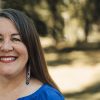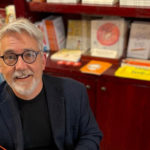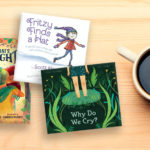At the culmination of every year, I ask graduating seniors to pass along some sage advice to future students in a short essay. Invariably, almost all of them tell their fellow Stoneman Douglas Eagles to make sure they listen intently to everything Mr. Foster says, stay off their phones, and read the textbook. So, when Scholastic approached me about writing a government book for a younger audience, I jumped at the chance to create a resource that wouldn’t just inform kids about the political process, but also encourage them to be active participants in it.
“If you don’t participate, you can’t complain” is my mantra in the classroom and in life. So many of us expect maximum results with minimum effort. Yet we know that method is invariably going to fail. So, we default to allowing others to make decisions on our behalf. Unfortunately, when we continue to defer to the wishes of others, it impacts all aspects of our lives. This is very evident in the area of government where most of us just decry, “It is what it is!” Well, I’ve been trying to change that mindset among my family, friends, and students for decades.
On February 14, 2018, I was teaching my seniors about how interest groups have wrestled power away from the average American when a lone gunman changed our community in Parkland, Florida, forever and sparked a desire for change. My students spearheaded the #NeverAgain movement, organized the March for Our Lives, and let the world know that every single person has the ability to affect change. And that effort can be magnified easily, especially by those that know how to use social media and technology to organize and spread a message.
The earlier students learn about their roles as citizens, the better prepared they’ll be to form educated opinions on a myriad of subjects. My main goal with For Which We Stand was to instill in young people the tools to apply that knowledge to make a difference in their world.
I believe it is incumbent upon us as adults to empower the next generation to play an active role in society. For far too long, teachers have been overly cautious about partaking in open dialogues with their students about what’s going on in our communities and our nation. But there are so many opportunities to lead Socratic discussions within the classroom that will allow students to evaluate all sides of a topic.
As kids enter my room, the desks are arranged in circles to allow them to discuss topics unabated. My only participation is to ensure civility and present ideas that the students might not have unearthed on their own. There doesn’t have to be a wrong and right to every argument; there are degrees of correctness. I let them know that it’s okay to disagree as long as they don’t disrespect or demean others. It’s imperative to model how to formulate a genuine counter argument and present it without personally attacking the opposing party, especially in today’s political climate. We can change the way dialogue is carried out in this nation and I believe it is our responsibility as educators to do so.
As big issues arise, such as COVID-19 vaccines, distance learning, and the legalization of marijuana, my kids clamor to discuss them. Together, we unpack these issues in real time. It’s a great way to begin every class, and it allows my students to become more confident in communicating with others, even when then are not in the majority opinion.
My task in writing For Which We Stand was to ensure that all kids have a working knowledge of how the government operates and what their role can be within that system. The more we inform kids, the more we prepare them to shape policy and make change at the local, state, and national levels. The last section of my book is solely dedicated to how kids can make a difference, no matter their age.
Young citizens have a voice in our government. I aim to teach them how to use their platform to not only hold politicians accountable to their generation, but to every generation that follows. And I hope For Which We Stand will play an integral role in making that happen.






